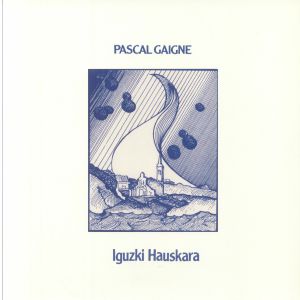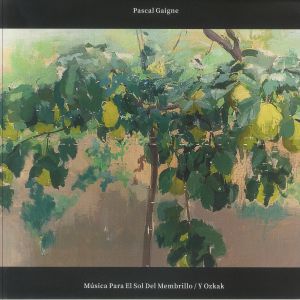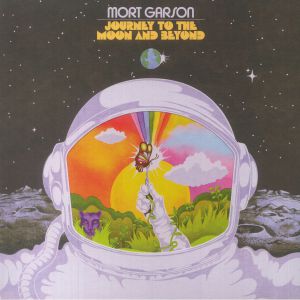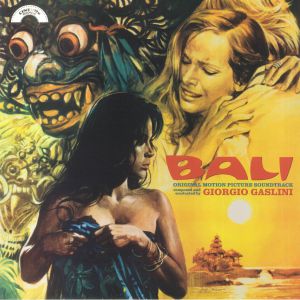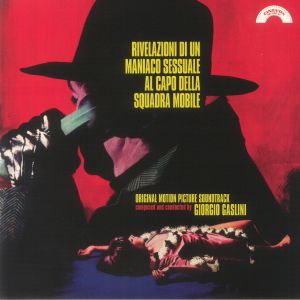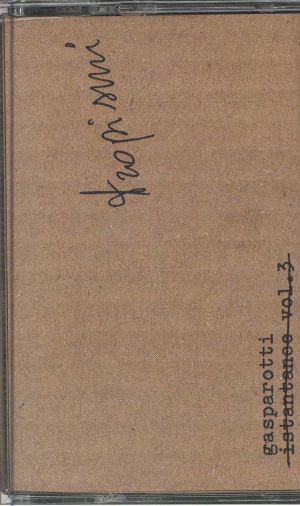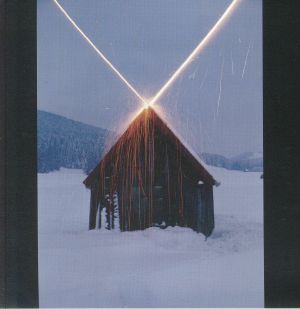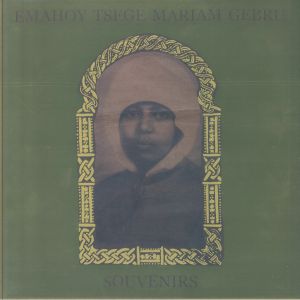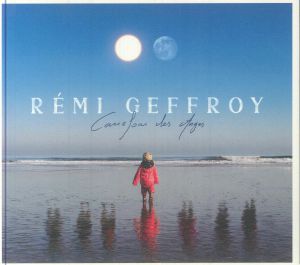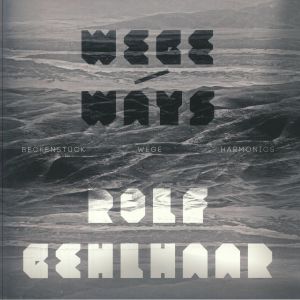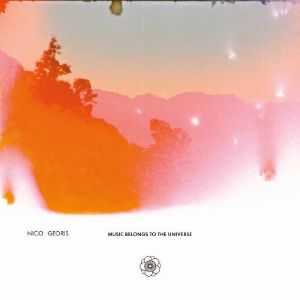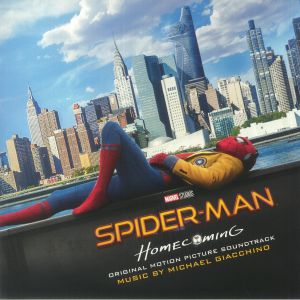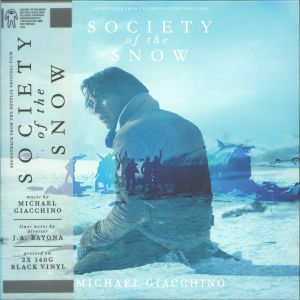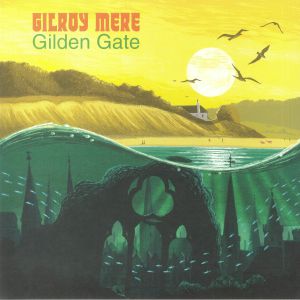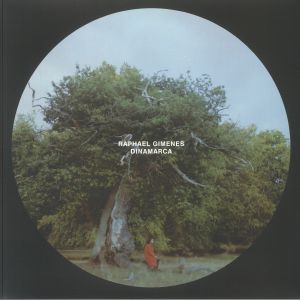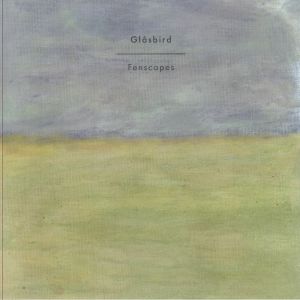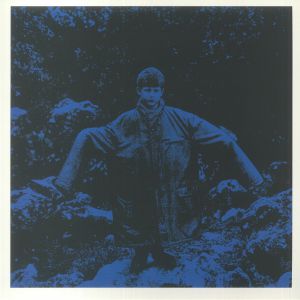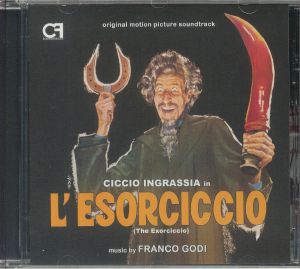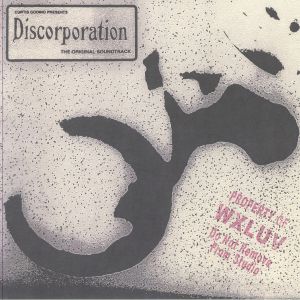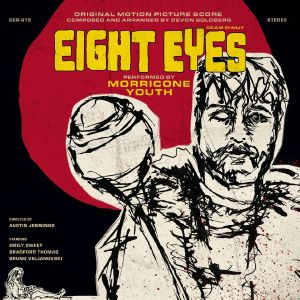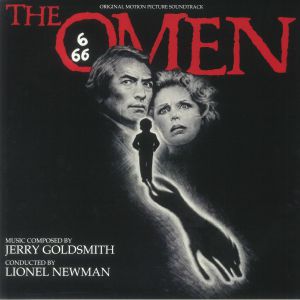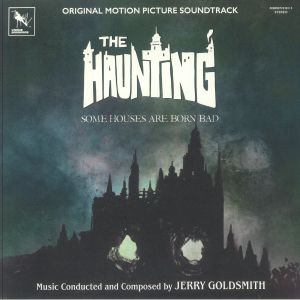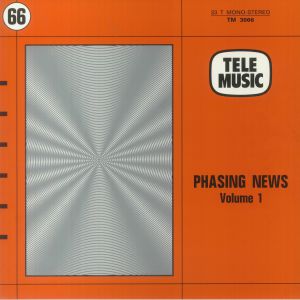Filter
Genre
在庫状況
Release Date
アーティスト
Featured
リリースタイトル
タグ
Back catalogue:
Juno's full catalogue of
シングル
L'Arbitro (green vinyl 7")
Cat: TTEP 14G. Rel: 06 Dec 24
in stock $29.64
アルバム
in stock $30.48
in stock $24.38
Cat: JIAOLIU 2407. Rel: 13 Mar 25
in stock $39.88
Pom Poko: Image Album (LP + insert with obi-strip)
Cat: TJJA 10064. Rel: 05 Nov 24
Review: Pom Poko, also known as The Raccoon War, is a charming animated comedy-drama from Studio Ghibli that premiered on July 16, 1994. As the first feature film created at Ghibli's new Koganei studio, it marks the directorial debut of Isao Takahata. The story follows a group of tanuki (raccoon dogs) who band together to defend their forest home from encroaching urban development. The film's title, Pom Poko, refers to the traditional sound made by tanuki drumming their bellies, highlighting the rich folklore and cultural references woven throughout its enchanting and emotional narrative. The accompanying Pom Poko (Image Album), envisioned by Takahata, showcases an exploration of various facets of Japanese music, with raccoons as the film's central characters. This impactful soundtrack enhances the film's themes and moods, providing a delightful auditory experience that resonates with viewers. Overall, Pom Poko stands as a testament to Ghibli's ability to blend whimsical storytelling with profound environmental messages, making it a cherished addition to the studio's illustrious repertoire.
… Read more in stock $26.88
Saint Of The Pit (LP + poster)
Cat: ISO 008LP. Rel: 23 Oct 24
Review: The 1986 sonic pentad by Diamanda Galas, Saint Of The Pit, is the second of two records forming the devised, pestilent occult rite - in her terms, the "plague mass" - known as the Masque Of The Red Death. In clairvoyant dialogue with the first part (The Divine Punishment), both records, in symbiosis, are said to possess an innate correctitude, with saintly playback "possible at maximum volume only." When we oblige by Galas' command, we find ourselves thickly immersed in the kind of sonic esoterics that only the most adept of oneiromancers might be able to swallow and integrate into their mantic: waspish whispers, dulotic dirges, heathen hums. Galas' episcope is a dissenting, idolatrous projection in sound and vision, with 'Artemis' and 'Deliver Me' spanning red-robed, sectarian vocal operatics, not to mention their backing, low-noted, open piano chord strikes. The *eschaton* of the record is, of course, is its quintessential fifth star-point: 'Cris D'aveugle (Blind Man's Cry)', on which Galas, the occult visionary, profanes the lyrical votive candle wax with blasphemous talk of nailed eyes and desecrated caskets.
… Read morePlayed by: Juno Recommends Experimental
in stock $28.54
Review: Elliot Galvin is a leading figure in UK jazz with four solo albums that have topped year-end lists in respected media outlets. He is also a member of the Mercury-nominated Dinosaur and has collaborated with key jazz cats such as Shabaka Hutchings, Emma-Jean Thackray and Norma Winstone. Known for his improvisational prowess, his latest solo album taps into that skill once more and is an entirely improvised record that takes in quiet beauty like the opener, more theatric drama on 'Still Under Storms' and world jazz sounds on 'High & Wide'.
… Read more in stock $23.55
Strata (LP limited to 300 copies)
Cat: ZAM 041LP. Rel: 21 Mar 25
in stock $20.78
Domestic Scene (limited LP + MP3 download code)
Cat: FDTB 762. Rel: 22 Jul 24
in stock $36.85
Journey To The Moon & Beyond (mars red vinyl LP + poster in die-cut sleeve)
Cat: SBR 3042LPC3. Rel: 20 Jul 23
Review: Canadian composer, arranger, songwriter, and electronic music pioneer Mort Garson just keeps on giving, even now, 15 years after his death. Archival releases since have come not-so-thick-and-fast, but occasional and well thought through, with Journey to the Moon & Beyond the latest example of this. Not, as the cover and title might suggest, the score to some forgotten 1970s animated classic, but instead a collection of stuff very few will have heard before, let alone had opportunity to buy, it's really something special. On the track list, then, you'll find the soundtrack to 1974 Blaxploitation movie Black Eye, or at least part of it. Similarly splendid, but in a very different way, are the grand tones of 'Zoos of the World', originally made to accompany a 1970 National Geographic special of the same name. Then there's the music he wrote for the 1969 moon landings, as used by CBS News at the time. History bottled, or rather pressed, get it while it's fresh (and in stock).
… Read morePlayed by: Juno Recommends Leftfield
in stock $27.43
Bali (Soundtrack) (Record Store Day RSD Black Friday 2022) (limited orange vinyl LP)
Cat: LPOST 060. Rel: 06 Dec 22
in stock $32.69
Rivelazioni Di Un Maniaco Sessuale Al Capo Della Squadra Mobile (Soundtrack) (limited yellow vinyl LP)
Cat: LPOST 030. Rel: 05 Jul 23
in stock $32.69
Played by: Juno Recommends Experimental
in stock $20.23
Review: We Have Dozens of Titles by Gastr Del Sol is a treasure trove for fans, offering a glimpse into the experimental post-rock pioneers' journey from their Bastro roots to their groundbreaking work as Gastr Del Sol. This collection, curated from their 1993-1998 recordings, shows their evolution into sonic explorers, pushing the boundaries of post-rock with influences from musique concrete and free improv. The unearthed CBC recording from Festival International de Musique Actuelle de Victoriaville in 1997 is a highlight, featuring ethereal versions of familiar tracks like 'The Seasons Reverse' and 'Blues Subtitled No Sense of Wonder.''The live rendition of "Onion Orange' is a revelation, with Jim O'Rourke's kosmische synth waves intertwining seamlessly with David Grubbs' intricate guitar work. Additionally, the inclusion of rarities like 'The Harp Factory On Lake Street' and tracks from various compilations adds depth to the collection. Each track, whether a live performance or a studio recording, has been meticulously mastered or remastered by O'Rourke, enhancing the listening experience. We Have Dozens of Titles not only fills in gaps in Gastr Del Sol's discography but also exemplifies their innovative approach to music-making.
… Read more in stock $30.76
Review: The first vocal album by beloved Ethiopian nun, composer, and pianist Emahoy Tsege Mariam Gebru, Souvenirs is a profound and deeply moving home collection of cassette recordings made amidst political upheaval and turmoil. These are songs of wisdom, loss, mourning, and exile, sung directly into a boombox and accompanied by Emahoy's unmistakable piano. Though written and recorded while still living at her family's home in Addis Ababa, Emahoy sings of the heartache of leaving her beloved Ethiopia, a reflection on the 1974 revolution and ensuing Red Terror in her homeland, and a presentiment of her future exile in Jerusalem. Rich with the sound of birds outside the window, the creak of the piano bench, the thump of Emahoy's finger on the record button, they create a sense of place, of being near the artist while she records. Emahoy's lyrics, sung in Amharic, are poetic and heavy with the weight of exile; she dreamt of releasing this music to a larger audience before her passing in March of 2023, so in her honour, Mississippi present this album in collaboration with her family now, in what would have been her 100th year.
… Read more in stock $31.58
in stock $32.42
Carrefour Des Anges (CD)
Cat: CVE 25RGCDA. Rel: 07 Mar 25
in stock $30.20
in stock $45.98
in stock $27.33
Played by: Juno Recommends Ambient/Drone
in stock $31.02
in stock $32.09
Music For Unknown Rituals (gatefold 2xLP + MP3 download code limited to 300 copies)
Cat: UR 149LP. Rel: 20 Nov 23
Review: Another exceptional double album deep dive from Umor Rex mainstays Andreas Gerth and Carl Oesterhelt, respectively one-half of Driftmachine, and the artist who debuted with the landmark 11 Pieces for Synthesizer album. As ever, trying to summon adjectives to correctly describe what's here isn't easy, but let's give it a go anyway. Mysterious, dark, haunting, but also ultimately very beautiful - albeit often in a slightly chilling way - it's highly rhythmic patient stuff. A fitting title, it's hard not to picture tribalism, gatherings, premeditated practices and timeless traditions when becoming absorbed by the hypnotic contents here. It's transportive stuff, both in terms of time and place, era and style, a sense of loops and cycles being the real omnipresent thread here. Earthen ambient, strange factory floor downtempo, cinematic synths and more. The kind of record that's only possible when two people haul themselves up in a remote village with an abundance of instruments and see what happens.
… Read more in stock $40.45
Chess Of The Wind (Soundtrack) (LP + booklet)
Cat: MRI 207LP. Rel: 13 Jun 24
Review: There are back stories, and then there's Chess of the Wind. Sheila Gharachedaghi's remarkable movie soundtrack wouldn't be here today if it weren't for the fact the movie itself - a 1976, pre-revolutionary Iranian queer-gothic-class-horror masterpiece - had been banned in its homeland and presumed lost forever, until a copy turned up in an antique shop. That was 2014, and six years later it was re-released, having benefited from restoration by the Martin Scorsese Film Foundation. A remarkable insight not just into a society long since lost, but its pitfalls and problems, to accompany this Gharachedaghi combines classical Persian instrumentation and atonal dissonance, traditional melodies and experimental moods for a score that's just as much of a landmark.
… Read more in stock $29.91
Spiderman: Homecoming (Soundtrack) (limited numbered gatefold 180 gram audiophile blue vinyl 2xLP (side 4 etched) + poster + booklet in pop-up spot-varnished sleeve)
Cat: MOVATM 325C. Rel: 25 Apr 23
Review: It's pretty hard these days to keep up with all the different new Spider-Man movies, but you should try because somehow they all seem to be pretty good despite it being such a well-worn character. The music, too, always manages to reach new levels as did this, the original soundtrack for the 2017 version, Spider-Man: Homecoming, by Michael Giacchino. It is full of dramatic and wide-screen orchestration, sweeping strings and rousing musical adventure but also the more quiet moments of reflection and tenderness. This version comes with a poster in a deluxe sleeve on blue vinyl.
… Read more in stock $41.28
Jurassic World Dominion (Soundtrack) (gatefold 180 gram vinyl 2xLP + insert with obi-strip)
Cat: MOND 260B. Rel: 19 Aug 22
in stock $47.65
Review: Michael Giacchino's score for 'Lost: Season 1' did plenty to add to the cult shows mystical appeal. Released originally in 2006 and now arriving via Craft across four sides of vinyl, the soundtrack weaves a rich tapestry of emotion, mystery and adventure with Giacchino's evocative compositions capturing the essence of the show's enigmatic island setting and enhancing the drama and suspense of each episode. The main theme, with its haunting strings and ethereal melodies, became synonymous with the series and contributed to its atmospheric allure. Giacchino's ability to create a musical landscape that mirrors the show's complexity makes this a standout soundtrack of its kind.
… Read more in stock $39.88
Exotic Themes From The Silver Screen: Volume One (gatefold 'tropical cocktail' light orange marbled vinyl 2xLP + insert with obi-strip)
Cat: MBM 16LP. Rel: 12 Sep 24
in stock $46.53
Society Of The Snow (Soundtrack) (2xLP + booklet with obi-strip)
Cat: MBMLP 1. Rel: 11 Apr 24
Review: Michael Giacchino, a decorated Academy Award-r winning composer, delivers a commanding yet tender score for J.A. Bayona's moving film The Society of the Snow. It recounts the harrowing true tale of the 1972 Uruguayan flight that crashed in the remote Andes, and the ensuing battle for survival. Amid despair, the film champions hope which is a sentiment echoed in Giacchino's emotionally charged score. Balancing poignancy with optimism, the music navigates a delicate path that amplifies the film's power. Bayona and Giacchino's collaboration yields a cinematic masterpiece that will surely resonate as one of the year's most compelling narratives.
… Read more in stock $42.66
Next Goal Wins (Soundtrack) (neon pink vinyl LP with obi-strip)
Cat: MBM 20LP. Rel: 14 Nov 24
in stock $41.00
Gilden Gate (sea green vinyl LP + MP3 download code)
Cat: PIPE 033LP. Rel: 22 Mar 23
Review: Gilroy Mere aka Oliver Cherer shows off two different sides of his sound on this new Gilden Gate album for Clay Pipe. It is the latest in a long line of superb sounds over the course of two decades which have distilled folktronic, singer-songwriter, jazz, ghost-pop and guitar tinged disco rock. Here he soundtracks sun-kissed beaches and rural Suffolk on side one and then goes underwater to explore through music the lost city of Dunwich,
… Read more in stock $23.83
Adlestrop (limited hand-numbered blue vinyl LP + insert)
Cat: PIPE 02503. Rel: 22 Mar 23
Review: Gilroy Mere is one of many alter egos of Oliver Cherer, and when working under this moniker there's a predisposition for transport-themed things to happen. The last album, beautiful and beguiling The Green Line, had a rich, dark green vintage British train on the cover just in case the title wasn't enough. In the past, he's done things themed on bus routes. This time, the locomotive on the sleeve is red.
More so, Adlestrop is a reference to one of many UK railway stations axed in the brutal Beeching Act of the 1960s - a cull of small stations deemed unviable, cutting off many communities. The opener, a strange, almost medieval slice of birdsong, chant, and twinkling chimes, even reels off a list of others that were closed. From there, we go deeper into sounds and words that are as inspired by the idea of rural England and travel as they are the country's eccentricity, which is so commonly founding its leftfield electronic output.
… Read moreMore so, Adlestrop is a reference to one of many UK railway stations axed in the brutal Beeching Act of the 1960s - a cull of small stations deemed unviable, cutting off many communities. The opener, a strange, almost medieval slice of birdsong, chant, and twinkling chimes, even reels off a list of others that were closed. From there, we go deeper into sounds and words that are as inspired by the idea of rural England and travel as they are the country's eccentricity, which is so commonly founding its leftfield electronic output.
in stock $24.38
Played by: Juno Recommends International
in stock $25.21
Fenscapes (heavyweight vinyl LP limited to 100 copies)
Cat: WLR 172. Rel: 22 Jan 25
Review: Glasbird is the project of British composer Harry Towell, owner of the ambient label Whitelabrecs. Beginning in 2018, he anonymously created A Sonic Expedition, an eight-album series inspired by remote locations like Greenland and Siberia. In 2024, Harry revealed his identity in an interview and then announced Fenscapes, an album inspired by the South Lincolnshire Fens near his village. These flat, marshy landscapes are rich in biodiversity and shaped his compositions. Harry explored local fen roads, observing wildlife and open vistas for inspiration and it all plays out in a bucolic, widescreen, immersive record of the highest quality.
… Read more in stock $29.91
The Hours (Soundtrack) (gatefold 2xLP + booklet)
Cat: 007559 7910292. Rel: 29 Sep 22
Review: The 2002 film The Hours starred hefty Hollywood talents Nicole Kidman, Meryl Streep and Julianne Moore, and the original score was composed by no lesser titan of his industry than Philip Glass. It is a masterful work from the legendary minimal composer and is here presented across four sides of vinyl by the Nonesuch label. It has plenty of thick, lush strings and lots of tonal suspension with cool piano parts, plenty of heavily pregnant silences and cascading scales that all add plenty to the film itself as well as being a great standalone listen.
… Read more in stock $30.20
Review: Glotman's new album is maybe this most introspective work. It's a deep dive into a world of tension and atmosphere, alive with cinematic soundscapes dreamt up deep within the heart and mind of the Berlin-based sonic experimenter Yair Elazar Glotman. The composer shows that he has great range here, from haunting worlds of slowly evolving drones to more visceral ambient churn that drags you into the midst of the tension. Tools used to create these sounds include double bass, vocals, guitar, modular synths and custom tape loops and it is a real triumph.
… Read morein stock $20.77
Inner Fucking Peace (LP + insert + MP3 download code)
Cat: LAUNCH 371. Rel: 31 Oct 24
Review: GNOD, the ever-evolving psychedelic noise-rock collective, returns with Inner Fucking Peace, a transformative collaboration with Portuguese vocalist MC Sissi. Known for constantly reinventing their sound, GNOD delivers an album that pushes new boundaries. Comprised of eight tracks for voice and electronics, this release merges experimental textures with Sissi's stream-of-consciousness Portuguese lyrics. The album showcases a broad sonic palette, from the minimalist tuned percussion of 'Stop' to the ominous electronics and crashing industrial drums on 'Get Out', reminiscent of GNOD's touring partners Harrga. Tracks like 'Tea & Eggs' delve into reggaeton-infused minimal synth, while 'Flute Theme' centers around chopped and screwed woodwind arrangements. MC Sissi's contributions, often improvised, bring an emotional depth to the album. Her irate vocals, mournful crooning and playful autotune add a new dimension to GNOD's industrial beats and spaced-out synths. With tracks ranging from hypnotic hand drum workouts to the gloom-laden 'Cannela Crematoria', Inner Fucking Peace marks another bold, unpredictable chapter in GNOD's extensive discography, leaving fans eager for what's next.
… Read more in stock $23.83
The Gallows Pole: This Valley Will Rise (Soundtrack) (Record Store Day RSD 2024) (limited gatefold 'molten metal' black & orange swirl vinyl LP + 7")
Cat: LAUNCH 350. Rel: 07 May 24
in stock $31.86
God Bless The Machine Dancouga BGM Collection Vol 1 (LP + insert)
Cat: MHJL 310. Rel: 17 Oct 24
in stock $39.34
in stock $21.05
in stock $37.67
Eight Eyes (Soundtrack) (limited clear & red swirl vinyl LP + MP3 download code)
Cat: CCR 015. Rel: 06 Dec 24
in stock $32.13
Music For Film (gatefold white vinyl 2xLP)
Cat: SILLP 1775. Rel: 10 Mar 25
in stock $46.82
The Time It Takes (limited translucent orange vinyl LP + MP3 download code)
Cat: WV 210LPC1. Rel: 16 Oct 20
Review: "So so beautiful" is apparently the phrase contemporary classical hero Ryuichi Sakamoto used to describe the work of Keith Kenniff, AKA Goldmund. The latter's latest, The Time It Takes, certainly fits that bill. A stunning, serene and quietly powerful collection of sonic stories that seem to tell tales of hope, heartbreak, love and loss without resorting to words.
Largely centred on Kenniff's deft piano skills, the keys act as focal points on which bigger and more ethereal arrangements hang. Tracks like 'Of No Other' and 'Day In Day Out' take the producer's minimalist spirit to heart, limiting the scale of background sounds to distant echoed refrains, while 'Memory Itself' and several others embrace the principles of drone ambient with arrangements that seem to develop without us ever noticing. A hushed epic, to say the least.
… Read moreLargely centred on Kenniff's deft piano skills, the keys act as focal points on which bigger and more ethereal arrangements hang. Tracks like 'Of No Other' and 'Day In Day Out' take the producer's minimalist spirit to heart, limiting the scale of background sounds to distant echoed refrains, while 'Memory Itself' and several others embrace the principles of drone ambient with arrangements that seem to develop without us ever noticing. A hushed epic, to say the least.
Played by: Catz 'n Dogz (Pets Recordings)
in stock $24.65
The Omen (Soundtrack) (reissue) (limited blood red & black splattered vinyl LP)
Cat: 724264 2. Rel: 24 Nov 22
Review: In the grand tradition of devilish offspring on film, has there even been one as powerfully creepy as little Damien in The Omen? The film may show its age these days, but the Gregory Peck-starring horror remains an all-time classic, and that's in no small part down to Jerry Goldsmith's score. Just listen to the eerie choral chants opening up 'Ave Satani' and feel the hairs on the back of your neck stand on end. This seminal horror soundtrack has now been repressed on a limited blood red and black splattered vinyl, all the better to channel your own demons from the comfort of your home.
… Read more in stock $28.54
The Haunting (Soundtrack) (gatefold translucent green vinyl 2xLP)
Cat: 725381 1. Rel: 03 Oct 24
in stock $38.78
Siamo Tutti In Pericolo (LP + MP3 download code)
Cat: SOMA 058LP. Rel: 20 Mar 25
Review: To say there's a meditative quality to Golem Mecanique's third album would be like saying air is something we breathe. The nom de plume of French multi-instrumental Karen Jebane, the album title directly quotes the final comments made by Pier Paolo Pasolini in his last ever interview, given just days before his body was found on an Italian beach after being brutally murdered. "We are all in danger", he quipped. From what, or who, we are still trying to figure out, 50 years on. Siamo Tutti In Pericolo doesn't look to answer the great mystery of what happened to the great filmmaker and auteur. But it does look to feelings of tension, quiet unease, and opaque mystery for its incredibly atmospheric tomes. This is deep dive stuff, reliant on a combination of refrained notes, echoes, and sombre, spiritual voices inviting us to push through into some other state of consciousness. Whether that will shed any light on anything is, of course, the real question we need to answer.
… Read more in stock $24.93
Review: This is the debut solo album by Italian-born, London-based composer, bassist and vocalist Ruth Goller. It was originally released in 2021 on Bex Burch's Vula Viel Records but quickly sold out with its detuned bass harmonics and dense vocal arrangements. Skylla introduced a sound both otherworldly and unplaceable and Goller's reputation soared as a result. That led to the critically acclaimed 2024 album Skyllumina on International Anthem while Skylla remains the genesis of her distinct style as it evokes the experimental energy of 1980s Downtown NYC or a Bjork-adjacent Icelandic project.
… Read more in stock $25.77
Skyllumina (LP + booklet + insert with obi-strip)
Cat: IARC 78LP. Rel: 29 Feb 24
in stock $23.83
Skyllumina (orange marbled vinyl LP + booklet + insert with obi-strip (indie exclusive))
Cat: IARC 78LPI. Rel: 29 Feb 24
in stock $26.88
Review: The Tele Music archival reissues series continues with this rather cosmic LP from Michael Gonet, one of the many esteemed library musicians to have graced the label and library's many halls in the early 1970s. Phasing News Volume 1 captures his approach well; slow-burning synthesizers, electric pianos and percussion, coalescing into neat motifs for cosmic alien arrivals, depraved montages, and awestruck final scenes. Those harbouring soft spots for Tangerine Dream's soundtracks are likely be impressed by the likes of the 'Soul Cathedral' and 'Moon To Light' tracks, but a complete jazz-prog curveball is thrown come 'Light In The Rains', after which the album is never the same.
… Read morePlayed by: Mimi
in stock $28.54

 USD
USD







